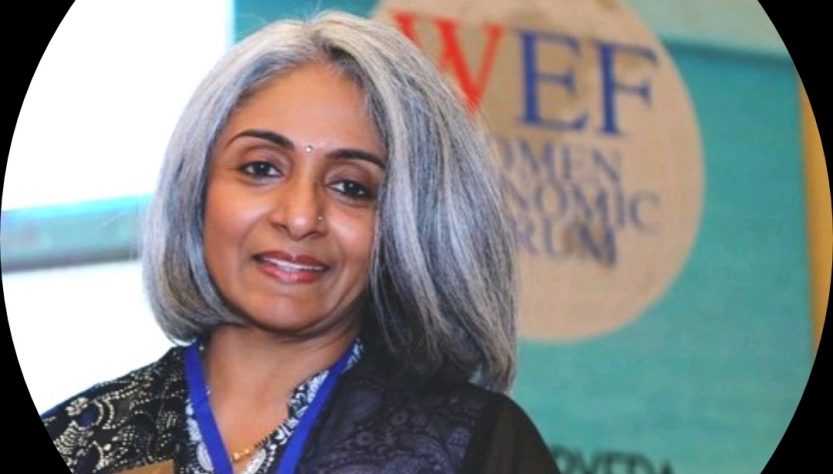By Chitra Sawant
The World Youth Skills Day, observed on 15 July, focuses on youth while they face challenges seeking employment opportunities.
The day is observed to generate greater awareness and discussion around the importance of training and the development of job relevant soft and domain skills.
As more than 50% of Indian youth are not on track to have the education and skills necessary for employment by 2030, according to the data produced by the Global Business Coalition for Education (GBC-Education), the Education Commission, and United Nations Children’s Fund (UNICEF), the need for skilling youth assumes greater significance.
The theme for World Youth Skills Day, 2020 is aptly titled ‘Skills for a Resilient Youth’. Indjournals supports this globally important topic via a broad spectrum of initiatives.
Indjournals will bring forth views from across the globe, of academicians, educationists, youth leaders, leadership trainers aimed at raising awareness on how important skills are in achieving economic growth and personal success.
Indjournals Chitra Sawant interviewed Sobhana Jaya-Madhavan, who is the associate vice-president (AVP) of external relations at Simon Fraser University, Canada. Sobhana is the recipient of the Woman of the Decade Award in the field of Education and Leadership awarded by Women Economic Forum (WEF). An alumni of Tata Institute of Social Sciences, with over 25 years of experience, developing and leading teams in different parts of the world, she is a relationship architect, social good advisor, blockchain and crypto enthusiast.
During her interview Sobhana highlighted the need to shift focus from rote based learning to skills based learning and the role parents can play in ensuring children are taught the relevant skills right from early childhood to excel in life.
Indjournals: How important is to ensure that the Indian youth develop soft and domain skill set which make them employable in the market?
Sobhana: We live in an age of disruption and youth need a unique skill set to survive and thrive in this ever changing world. What was once considered to be “soft” skills are now regarded as critical skills. The World Economic Forum reported that ten skills are critical to thrive in 2020 and complex problem solving is as important as emotional intelligence. Acquiring these diverse skills is critical for Indian youth to not only get employed but remain employed in a competitive global marketplace.
Indjournals: Indian Universities still follow the old pattern of education which depends on rote learning. How important is to have market aligned skill training?
Sobhana: When I worked in India as Head HR, I was frankly shocked at how unprepared graduates were to meet the demands of the marketplace. Over a two-year period, I interviewed hundreds of graduates and the majority did not get through the first stage as they lacked basic critical thinking skills and emotional intelligence. During the interviews, it was apparent to me that a majority of these graduates used rote learning over the years. This rigid way of learning helps with remembering, not understanding. The latter is what makes us literate. Alvin Toffler once said, “The illiterate of the 21st century will not be those who cannot read and write, but those who cannot learn, unlearn, and relearn.” This applies to both students and universities too.
Indjournals: At what age should the skills training process, should commence?
Sobhana: Simply put, skills refer to the ability to do something well. The introduction to a comprehensive skill set relevant to the 21st century must begin in a child’s early years. Children of all genders can be introduced to basic concepts at a very young age and be encouraged to develop creativity and critical thinking. As they get older they can be encouraged to develop expertise in specific areas. A child becomes an adult over a period of time and this transition is considered to be successful when dependency is replaced by autonomy through the various stages of development. As a society, we need to value autonomy and strive to make our children and youth independent and competent.
Indjournals: What kind of role parents can play to ensure the child is well equipped with skills set?
Sobhana: Parents play an important role in shaping a child’s life. In India, they have a huge say in what a child learns, how they acquire skills and the careers they choose. Parents have to understand the magnitude of change that is happening in every aspect of life and in every sector. They need to be able to listen and learn from their children as much as they expect their children to do the same. In my personal life, I try to be a co-learner with my children. In the high school they went to, teachers and students were regarded as co-creators of knowledge. All we need to do is look at the start-up space, youth are doing amazing things. A fear-based “shame and blame” culture does little good to nurture talent. Youth need the freedom to take risks and learn from their experiences.
Indjournals: There are various private players mushrooming in small cities and towns, some even exploiting people under the guise of providing training.
Sobhana: Work integrated learning, mentorships and internships are a great way for youth to develop their skill set and get a glimpse into the real-world challenges and expectations. Investments in this area can reap great rewards. When I was pursuing my MSW at TISS, I had 2 days of mandatory field work. When I look back, it was critical for my skill development as a Social Worker. Governments and businesses can partner and ensure consumers of education services and products clearly understand trustworthy sources. Youth and families need to do their part in researching the credibility of those offering training. A combination of good legislation, policy, public awareness campaigns and consumer protection mechanisms can help prevent exploitative practices.


